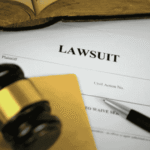Frivolous lawsuits can be a significant burden, draining your time, money, and emotional well-being. Whether you’re a business owner, professional, or private individual, understanding how to safeguard yourself against baseless legal claims is crucial. In this comprehensive guide, we’ll explore actionable strategies to minimize your risk and defend yourself effectively—while keeping your reputation intact.
Understanding Frivolous Lawsuits
A frivolous lawsuit is a legal claim filed with no substantial evidence, merit, or legal basis. These lawsuits are often used as intimidation tactics or to force settlements. Common examples include:
-
Defamation claims without proof
-
Baseless personal injury lawsuits
-
Sham contract disputes
-
Harassment or discrimination allegations without merit
Since legal systems vary by jurisdiction, what qualifies as “frivolous” can differ. However, courts often penalize plaintiffs who file such cases with fines or sanctions.
Why Do People File Frivolous Lawsuits?
Before diving into protection strategies, it’s essential to understand why these lawsuits arise:
-
Financial Gain – Some plaintiffs hope for quick settlements.
-
Revenge or Harassment – A disgruntled employee, competitor, or acquaintance may file a lawsuit to cause distress.
-
Ignorance of the Law – Some plaintiffs don’t realize their claim lacks merit.
-
Legal System Exploitation – In some regions, filing lawsuits is inexpensive, encouraging abuse.
Proactive Measures to Avoid Frivolous Lawsuits
1. Maintain Proper Documentation
Thorough record-keeping is your first line of defense. Ensure you document:
-
Contracts and agreements (signed, dated, and stored securely)
-
Business transactions (invoices, receipts, communications)
-
Employee interactions (performance reviews, disciplinary actions)
-
Incident reports (if applicable)
Digital backups with timestamps add credibility.
2. Implement Strong Contracts & Disclaimers
Well-drafted contracts minimize legal vulnerabilities. Key clauses to include:
-
Arbitration agreements (to avoid court battles)
-
Liability limitations
-
Clear dispute resolution processes
For businesses, disclaimers on websites, products, and services can prevent misleading claims.
3. Obtain Liability Insurance
Insurance acts as a financial shield. Consider:
-
General liability insurance (for businesses)
-
Professional liability (E&O) insurance (for service providers)
-
Directors & Officers (D&O) insurance (for executives)
Review policies to ensure coverage for legal defense costs.
4. Follow Compliance & Best Practices
Adhering to laws and industry standards reduces exposure. Examples:
-
Employment laws (proper hiring/firing protocols)
-
Data protection regulations (GDPR, CCPA compliance)
-
Safety regulations (OSHA standards for workplaces)
Regular compliance audits help identify risks early.
5. Avoid High-Risk Situations
Some industries (e.g., healthcare, construction, finance) face more lawsuits. Mitigate risks by:
-
Avoiding verbal agreements (get everything in writing)
-
Not engaging in public disputes (social media defamation risks)
-
Screening business partners/clients (background checks help)
6. Use Mediation & Arbitration Clauses
Mandating alternative dispute resolution (ADR) in contracts can prevent costly court cases. Mediation and arbitration are faster, cheaper, and private.
How to Respond if You’re Sued
Despite precautions, you might still face a lawsuit. Here’s how to respond effectively:
1. Don’t Panic—Consult a Lawyer Immediately
Even if the case seems baseless, legal guidance is critical. A lawyer can:
-
Assess the lawsuit’s validity
-
Draft a strong response
-
File motions to dismiss if applicable
2. Gather Evidence & Witnesses
Compile all relevant documents, emails, and witness statements that disprove the claims.
3. Consider Filing a Counterclaim for Malicious Prosecution
If the lawsuit is clearly frivolous, you may countersue for legal fees and damages. Courts may sanction plaintiffs who abuse the legal system.
4. Explore Early Settlement (If Strategic)
Sometimes, settling (without admitting fault) is cheaper than prolonged litigation—but consult a lawyer first.
5. Request Attorney’s Fees if You Win
Many jurisdictions allow defendants in frivolous cases to recover legal costs.
Long-Term Protection Strategies
1. Educate Yourself & Employees
Train staff on legal risks (e.g., workplace harassment policies, contract compliance).
2. Monitor Online Reputation
False accusations can spread quickly. Use reputation management tools to address defamatory content.
3. Build a Legal Defense Fund
Setting aside funds for potential legal battles ensures you’re financially prepared.
4. Stay Updated on Legal Trends
Laws change—subscribe to legal newsletters or consult an attorney periodically.
Final Thoughts
Frivolous lawsuits are stressful but avoidable with proactive measures. By maintaining documentation, securing insurance, and following legal best practices, you can significantly reduce your risk. If sued, act swiftly—seek legal counsel and defend your rights assertively.
Protecting yourself legally isn’t just about avoiding lawsuits; it’s about ensuring peace of mind in an increasingly litigious world. Stay informed, stay prepared, and don’t let legal bullies take advantage.
Brought to you by Kirewi – Your trusted partner in legal risk management and business protection.
- How to Protect Yourself from Frivolous Lawsuits: A complete Guide
- Frivolous lawsuits can be a significant burden, draining your time, money, and emotional well-being. Whether you're a business owner,
- Law
Related posts:
 7 Luminous Advocates in Lahore Secrets from Top Lawyers in Pakistan Advocates in Lahore Secrets from Top Lawyers in Pakistan
7 Luminous Advocates in Lahore Secrets from Top Lawyers in Pakistan Advocates in Lahore Secrets from Top Lawyers in Pakistan
 Navigating Legal Challenges: How Legably Connects You with the Right Attorney
Navigating Legal Challenges: How Legably Connects You with the Right Attorney
 Navigating Legal Challenges: How Legably Connects You with the Right Attorney
Navigating Legal Challenges: How Legably Connects You with the Right Attorney
 The Role of a Wrongful Death Lawyer in Compassionate Legal Support
The Role of a Wrongful Death Lawyer in Compassionate Legal Support
 Finding the Right Family Lawyer in Orlando: What You Need to Know
Finding the Right Family Lawyer in Orlando: What You Need to Know
 Can You Sue for Bad Credit Reporting? Know Your Rights: A Complete Guide
Can You Sue for Bad Credit Reporting? Know Your Rights: A Complete Guide
 How to the Protect Your Assets from Lawsuits: A Complete Guide
How to the Protect Your Assets from Lawsuits: A Complete Guide
 DUI Arrest? How Bail Bond Services Help Speed Up the Release
DUI Arrest? How Bail Bond Services Help Speed Up the Release






